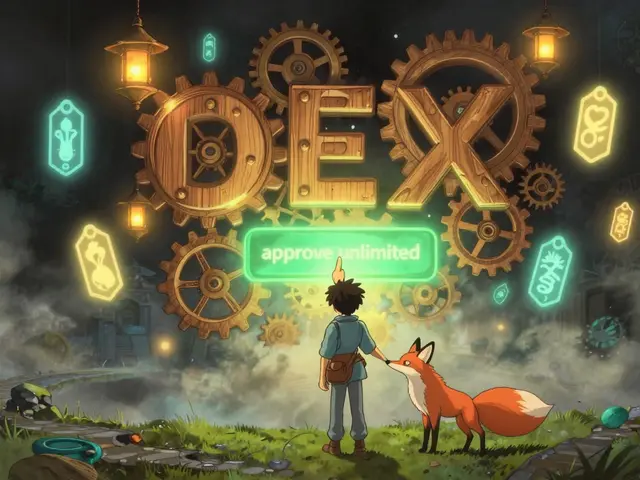Decentralized Exchanges: What They Are and Which Ones Actually Work
When you trade crypto on a decentralized exchange, a peer-to-peer platform that lets users swap tokens directly from their wallets without a central authority. Also known as DEX, it removes banks, brokers, and middlemen from the equation. That sounds simple, but not all DEXs are created equal. Some have deep liquidity and strong audits. Others are ghost platforms with fake volume and zero security—like WardenSwap or BB EXCHANGE, which show up in our reviews with no user history, no audits, and no real trading activity.
What makes a DEX worth using? It’s not just about being decentralized. It’s about liquidity, the amount of tokens available to trade at any given price. Without it, your trade slippage can eat 20% of your investment before it even finishes. That’s why KyberSwap on Optimism and PancakeSwap v3 on Ethereum get detailed reviews—they actually have users, volume, and tested contracts. Then there’s Sushiswap on Arbitrum Nova, which has near-zero fees but so little liquidity that it’s only good for tiny trades. And Velodrome Finance? It’s built for advanced users who understand ve(3,3) tokenomics and bribe systems—things most beginners don’t even know exist.
Not every DEX runs on Ethereum. Some, like Ton Inu, live on the TON blockchain and tie into Telegram bots. Others, like AIOSHI on Solana, are micro-cap tokens with no real utility. The key is knowing where you’re trading and why. If you’re looking for safety, check for audits. If you want low fees, look at layer-2 chains like Optimism or Arbitrum Nova. If you’re chasing yield, be ready for volatility—and always assume the token you’re swapping could vanish tomorrow.
You’ll find real reviews here—not hype. We don’t just list DEXs. We test them. We check if the trading volume matches the claims. We look at contract code. We see if anyone’s actually using it. Whether you’re swapping tokens on Uniswap, trying out a new DEX like WeDEX, or wondering why Iran’s miners use crypto at all, the posts below give you the unfiltered truth. No fluff. No marketing. Just what works—and what doesn’t.
29
How Courts Are Treating Crypto Assets: Property, Securities, and Jurisdictional Battles in 2025
Courts around the world are deciding whether crypto is property, a security, or something new. Australia recognizes it as property. U.S. courts focus on exchange type and securities law. Jurisdictional battles and SEC pressure are shaping the future.
Latest Posts
Popular Posts
Tags
- decentralized exchange
- crypto exchange
- crypto exchange review
- cryptocurrency
- crypto airdrop 2025
- CoinMarketCap airdrop
- blockchain
- meme cryptocurrency
- GENIUS Act
- cryptocurrency compliance
- crypto airdrop
- meme coin
- crypto trading
- fake crypto exchange
- Solana meme coin
- cryptocurrency valuation
- Binance Smart Chain
- underground crypto Nepal
- crypto airdrop guide
- crypto staking




